Food Tank, Food Systems and COVID-19: A Conversation with Dani Nierenberg
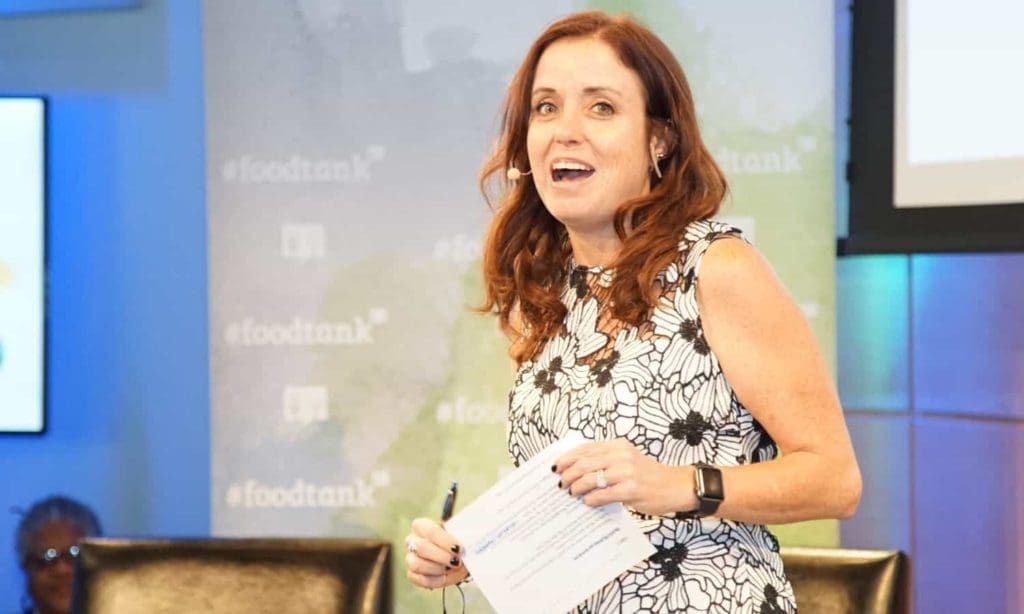
To say Danielle Nierenberg is passionate about food is an understatement. A world-renowned researcher, speaker and advocate, she’s spent her career fighting for food-systems change and is an expert on all things food and ag.
In 2013, Danielle co-founded Food Tank, a global community pushing for food systems change. Food Tank aims to educate and inspire and highlight solutions that will create change.
We’ve been curious to learn more about Danielle and her work for a while. And during this unprecedented time, we wanted to get her expert insight into how coronavirus will affect food systems as well. So, we dialed Danielle up to talk about her career, Food Tank and COVID-19.
World Food Program USA (WFP USA): Thank you for joining us today. Let’s start by talking about your career. It’s been so interesting, and you’ve made a real difference pushing for change in our food systems. How did this begin? What inspired your interest in food and agriculture?
DN: I grew up in a little down called Defiance, Missouri. It consisted of about 300 people, mostly farmers. I wanted nothing to do with that life, so as soon as I turned 18, I left.
I ended up studying political science in college, and also writing a lot as an environmentalist. During this time, I think I blamed farmers for destroying the rainforest and the environment. Right after graduating, I entered the Peace Corps and went to the Dominican Republic. There, I ended up working with a lot of farmers and extension workers and started to realize that it wasn’t farmers who were to blame. They were doing the best they can, and in many cases, they were better stewards of the land than anyone I’ve known. So, it was during my time in the Caribbean that I really had that “aha” moment about the great work being done by farming communities all over the world. That inspired me to study food and ag and environment in grad school and later to work for an environmental think tank where I visited farmers all over the world.
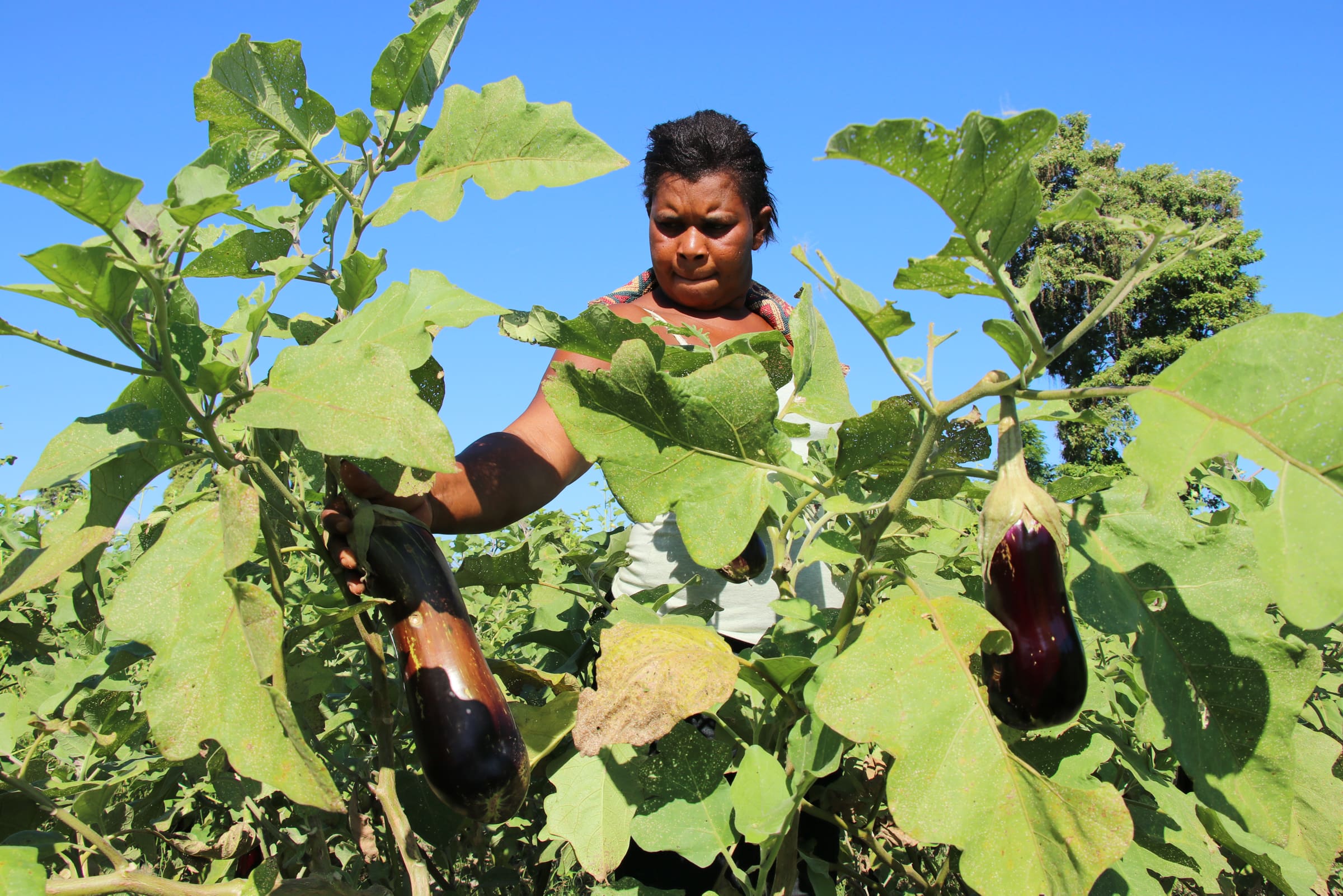
A small-scale farmer in Haiti checks her fields.
In 2013, I co-founded Food Tank with Bernard Pollack. It was born out of a desire to highlight stories of hope and success in these communities I was visiting. The organization I was working for at the time was really good at emphasizing problems, but not so good at talking about solutions. With Food Tank, we wanted to amplify successful solutions, that perhaps, with a little further investment, could replicate or scale to further positive change.
World Food Program USA: Can you tell us a little more about Food Tank? What does it look like now?
DN: Our mission at Food Tank is a simple one: We want to create a community for safe, healthy and nourished eaters, and amplify stories of success. We do this a few different ways. We have a robust news site where we publish only original content on issues like food loss, food waste, agro-ecology, food system equality, youth and farming, etc. We amplify those stories on social media and we also publish books and reports.
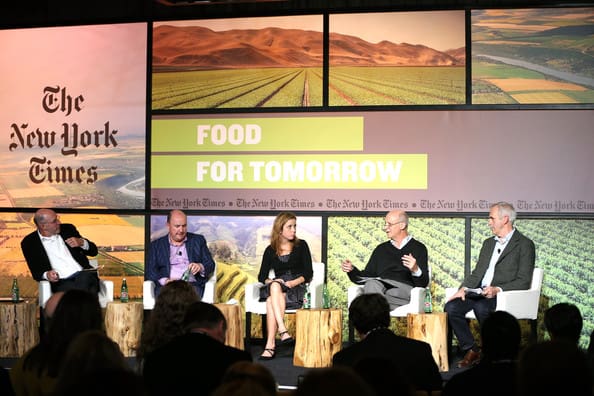
Danielle (c) at a Food Tank Summit in New York.
Over the last couple of years, we realized that having convenings throughout the U.S. was an important part of our work. We feel like we’re one of the few organizations that can bring different people together. For example, we’d have the CEO of a chicken company on the same stage as a food justice advocate having a real, respectful conversation.
Obviously with COVID-19, we’ve had to change our strategy for these convenings. Now, we’re having them virtually every day. We’re doing talks live at 1p.m. and 5p.m. EST with different food system experts talking about their work and how COVID-19 is impacting it and how they are helping their communities. Hopefully this will all end soon, but in the meantime, we feel that continuing this conversation virtually is necessary.
World Food Program USA: Are there any interesting things you’ve learned from these conversations yet? Is there one big thing that everyone seems to be on the same page about regarding the effects of COVID-19?
DN: Yes, time after time, nearly everyone has said that we need to respect the workers in the food system. From the farmer in the field to the processor to the distributor and truck driver to the people at your grocery store or in restaurants who have lost their jobs. If we couldn’t figure out a way to respect these people during normal times, after this is over, they should get higher pay. They should get sick leave. They should get all the resources they need to be safe and healthy so that we all can be safe and healthy. I hope there will be many silver linings that come out of this crisis, and that one of them is finally respecting all the invisible hands that touch our food every day.
World Food Program USA: That is a serious point. More and more as you hear what’s happening now, there is an effort to recognize the unsung heroes you mentioned and that we often take for granted.
I’m also curious about what you think international or domestic humanitarian organizations, like the United Nations World Food Programme, can do to support food systems so that everybody has access to food throughout this crisis and our supply chain and other parts can continue?
DN: First of all, I’m a big fan of the work that WFP does. I think it’s amazing organization that can respond to crises immediately and effectively. Organizations like yours should keep doing what they are doing. But also, maybe figure out ways to have more local and regional food systems that can support communities – so in times like this, where the international system is threatened, there’s a layer of security. I think there’s a real need for humanitarian organizations to take a 365-degree view but also look at the local and regional angle of all of this as well.
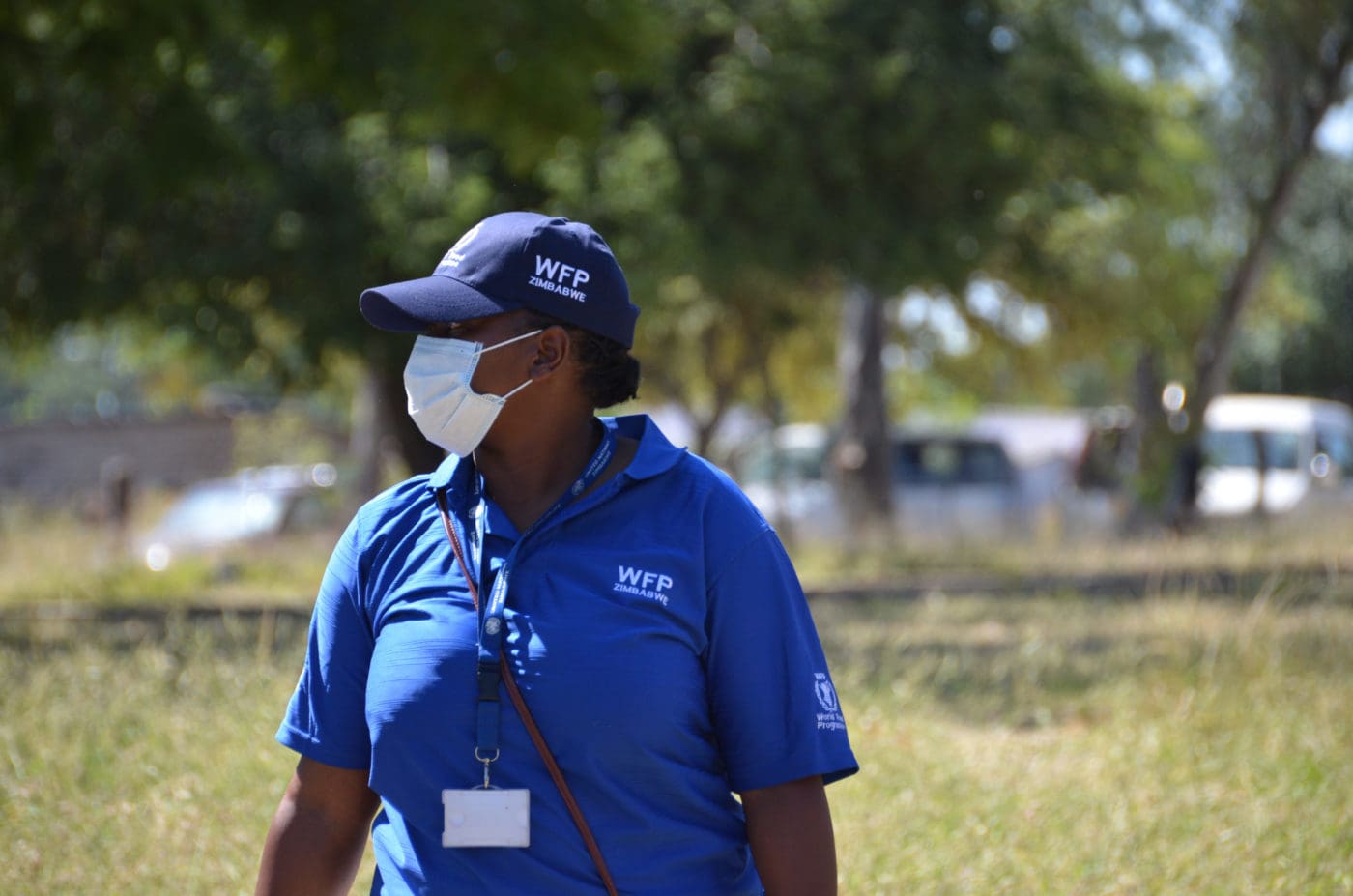
A WFP humanitarian at a distribution in Zimbabwe during the COVID-19 pandemic.
World Food Program USA: That’s a really good point, and now is definitely the time to examine all of that further.
Back to your career. Of all the projects you’ve worked on in your life, what’s excited you most and why?
DN: This is a really difficult question, but the older I get, the more excited I am about seeing so many young people involved in food in different ways. Whether you’re talking about sub-Saharan Africa, where you have young people who actually want to go back into farming and do it in different ways than their parents, or food entrepreneurs I meet at conferences or the interns I work with who are passionate about food justice. I’m really inspired by them all.
World Food Program USA: You’ve talked about young people, but what about other people you met through your career? I’m sure you’ve met a lot of people from famous chefs to corporate leaders to, you know, the small-scale farmers that you’ve talked about. Of all these people, are there any who’ve left a particularly strong mark on your life and career?
DN: This is the hardest question in the world to answer! I would say Frances Moore Lappé made a huge impact on me as a teen. I read her book, “Diet for a Small Planet”, and it helped me understand the connection between poverty and food production. It changed my life. It sparked my passion for food. And unbelievably, I met Frances in my 20s and she ended up being a good friend and mentor. I still can’t believe I know her. But without reading that book, I don’t think I would be doing what I am today.
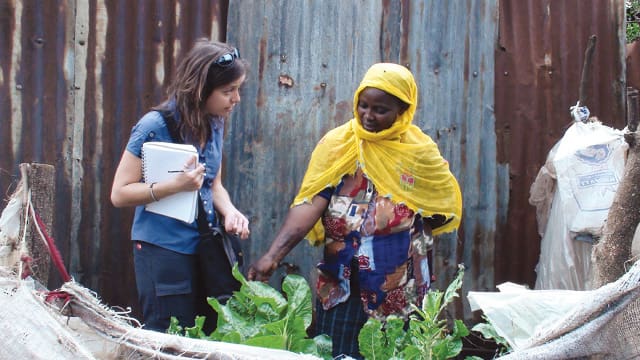
Danielle researching urban agriculture.
World Food Program USA: What kind of mentoring advice would you give to young people wanting to get involved in the type of work you do now?
DN: I mean, I always want people to follow their passion. Some people are really interested in preventing food loss and waste and others are interested in equality and justice. So, I think it’s more about: Where do you see the need and what interests you? How can you be helpful? There’s so much you can do. You can farm, speak, write, create technology. It’s more about finding your skillset and applying it to this issue.
World Food Program USA: Regarding COVID 19, as people are at home, is there anything young people – or anyone – can do right now to help? Particularly those who have passion for food, for justice and the issues surrounding it. Is there anything they can do at home to make a difference during this time?
DN: There’s so much people can do. I received a call from a church that runs a weekly food bank. They are having trouble accessing the amount of food to meet the increased need right now. You can volunteer online to help with logistics for causes like that. Reach out to campus organizations to see how you can help. I have a dear friend who runs Food Recovery Network. They rescue food from college campuses across the country and distribute it to people in need. Organizations like those have a wealth of resources for students who are stuck at home and still want to be active in this space.
And if you go to foodtank.com, you can find the Good Food Org Guide. It shows different organizations in all 50 states where people can volunteer. You need to be safe and practice social distancing right now, but if you’re healthy and able, you can take precautions and volunteer at organizations working to serve the increasing amount of people who need help right now.
There are so many things you can do online. You can amplify messages. You can write, share messages with your friends or create videos. And if you have the means, donate to good organizations, like World Food Program USA. Please do, because they need your support during this time.
World Food Program USA: Thanks again, Danielle, for joining us today. And for all you’re doing during this time. We encourage you to check out foodtank.com to learn more.
***
The U.N. World Food Programme is doing everything it can to continue to get food to the 90 million people it serves. This includes providing extra support for food and logistics systems that make this possible. But the U.N. World Food Programme can’t do this alone, it needs your support during these challenging times. Learn more about our work during COVID-19.




